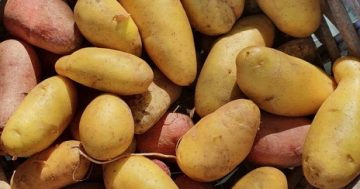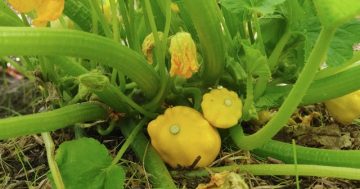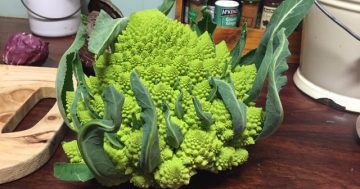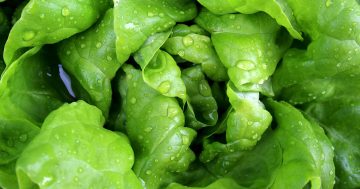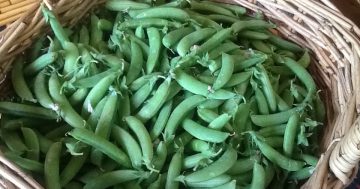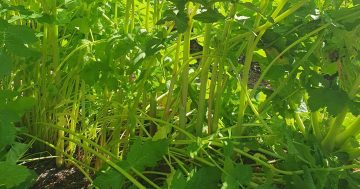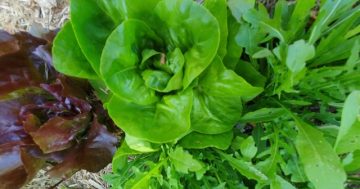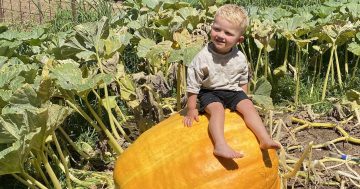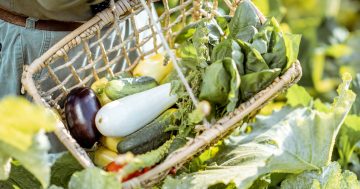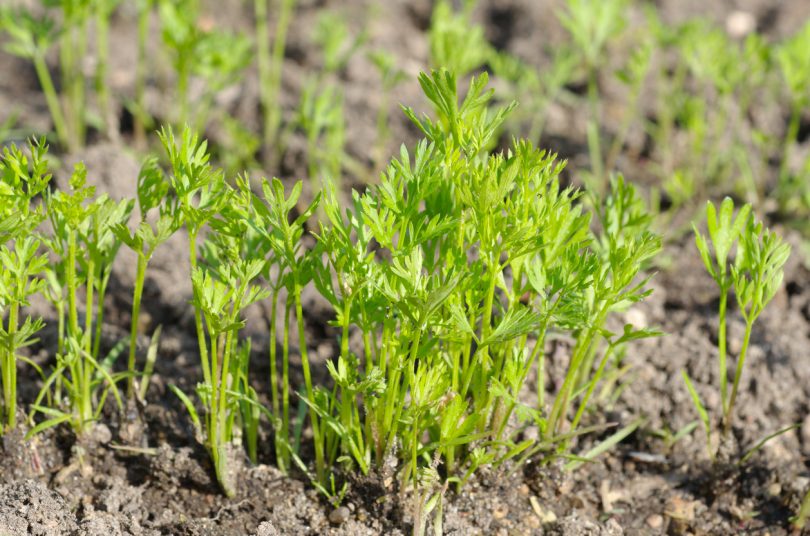
Emerging carrot seedlings take on a leafy form. Photo: File.
Spring is the time to plant a range of vegetable staples that will provide good eating well into summer.
By September, you will probably be running low on the over-wintered vegetables that have stored so well in the cold ground since June. Thoughts of fresh carrots, potatoes and bulging onions are a great motivator for the pleasurable work ahead in your garden.
Carrots, potatoes and onions can all be planted at this time of year with great success. Potatoes can be planted now up until Christmas.
The best way to plant potatoes in a small kitchen garden is vertically, in purpose-made potato grow bags, bins or homemade towers using tyres, mesh wire or sacks.
Growing potatoes vertically in containers is the same as growing them in the garden: start with a good layer of compost. Three or four seed potatoes can be grown in a 45-litre capacity bag.
Cover well with more compost or soil – at least 10cm. As the potato plants grow, continue to add more compost or soil until it reaches the top of your container. Water well, but take care – overwatering can result in disease.
Harvesting time can vary from 12-20 weeks. When the leaves begin to yellow – usually the lower ones first – stealing baby potatoes or chats can start, but just a few as you need them for a meal.
When the foliage has died off, the potatoes are fully developed and the bag or container can be emptied and the bounty of potatoes revealed.
While most people are keen to grow potatoes, there is a bit of reluctance when it comes to carrots. However, unlike potatoes, you can grow a large crop of carrots in quite a small space.
The most common concern about growing carrots is to do with germination. So here are a few tips for success.
First of all, good quality seed is important – check the plant-by date. There is no point planting seeds that are old. Also, seeds that have been poorly stored will not do well as they have lost their vitality and viability.
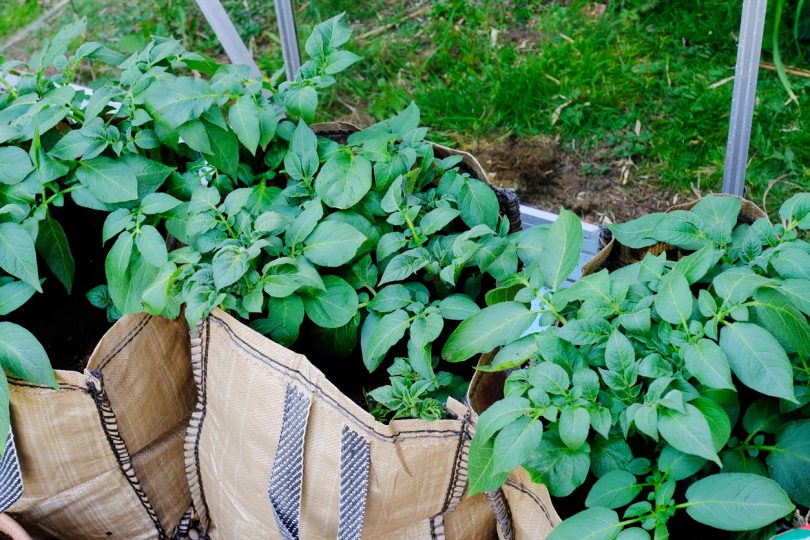
Potatoes growing in bags. Photo: File.
Seeds are best stored in a cool place – not on the bookcase in the lounge room.
So now to the planting process.
Carrot seeds need to be constantly moist for good germination and there are lots of tips about how to do this.
The most basic method is frequent shallow watering with a rose-style head on a watering can. Prior to planting, water the area well. Make a shallow trench with a stick, half a centimetre deep, and sprinkle the seed in the trench. It is easier to thin the planting once the seed has started to grow rather than trying to space these tiny seeds.
Cover the seed with a small amount of soil and gently firm down, then gently water. Check every day and water to keep the soil moist.
Germination at this time of year will take at least 10-14 days. When carrot seed germinates, they are quite fine and can easily be missed, looking a lot like blades of grass.
As carrots mature, the thin grass-looking leaves will eventually start appearing a bit like coriander leaves. This may take at least another five to 10 days.
Do not weed or do anything to the carrot patch until your seeds start to develop their first true leaves. One mistake that is easily made is to confuse the first stage of carrot seed germination for weed emergence, and to weed the bed.
Once germination has occurred, less watering is required. As the carrots develop, watering is similar to other vegetables in the garden.
It is not necessary to thin out carrots.
As they develop, you can harvest baby carrots to eat as part of the thinning process.
We find carrots grow quite well close together. Plant a one-to-two metre row of carrots every two to four weeks in between other plants in the garden for a constant supply.
While seedlings of summer vegetables are readily available at this time of year, regular frosts still occur. Even if you use frost protection, with September minimum daily temperatures still consistently below 16 degrees, summer vegetables will just sit in the garden not growing much.
You can wait a little longer until late spring and instead enjoy this time in the garden to plant lots of other veggies, including members of the brassica family, celery, onions and a huge range of European and Asian greens.
Wishing you happy times in your veggie garden.
Bronwyn Richards and Helen Lynch run Wynlen House Artisan Village Farm and Learning Centre, a small village organic market garden in Braidwood, NSW. Since 2006, they have grown and sold fresh vegetables, eggs, preserves and garlic, and teach others how to do the same.
Original Article published by Helen Lynch on The RiotACT.







